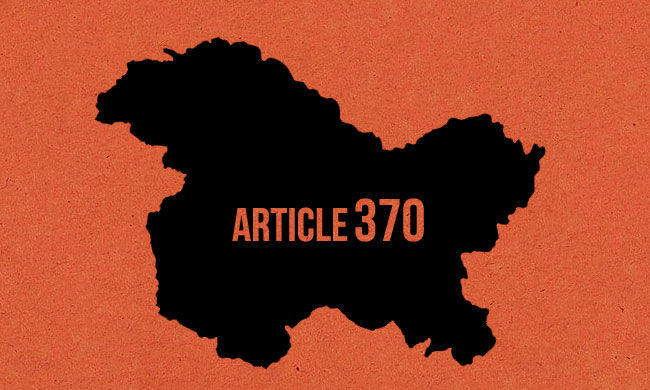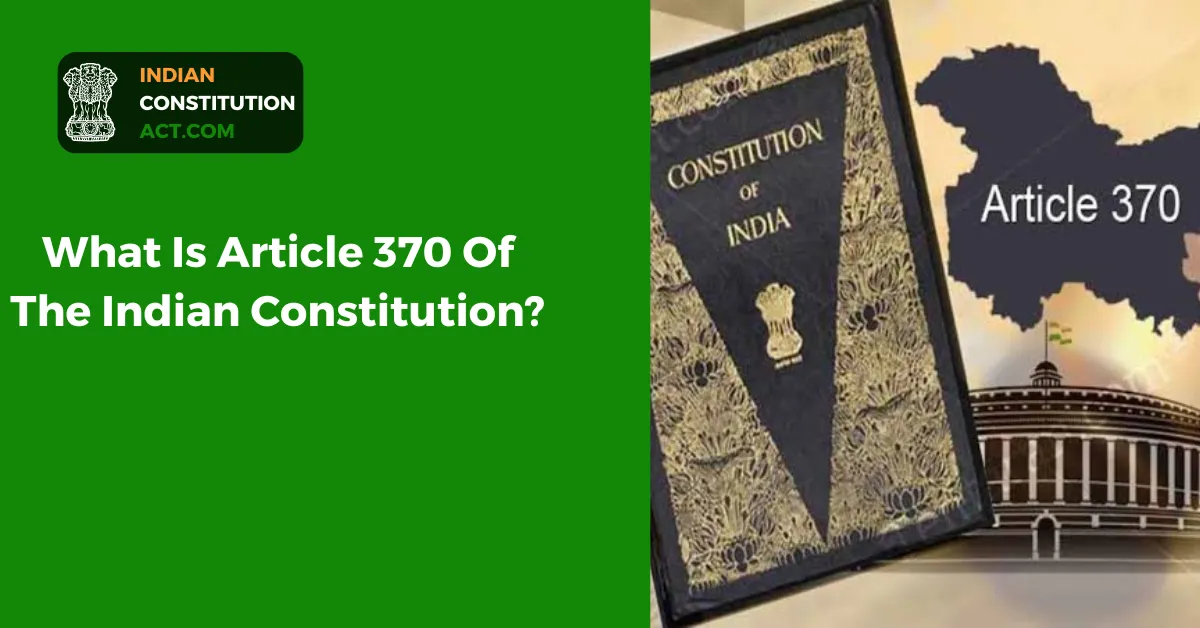In the Constitution of India, one of the most important articles is Article 30. The Article 370 of the Indian Constitution came into effect in October 1949. This article claims temporary provisions concerning the State of Jammu and Kashmir. To know exact details about this article, so read this blog now as this article is the most important and controversial in our Constitution.
Table of Contents

What Is Article 370 Of The Indian Constitution?
Article 370 of the Indian Constitution is related to Jammu and Kashmir, it claims temporary provisions concerning the State of Jammu and Kashmir. This article came into effect officially in October 1949 and it granted Kashmir autonomy of internal administration. It gives an allowance to make its laws in all matters except finance, defense, foreign affairs, and communications.
Article 370 of the Indian Constitution acknowledges the special status of the state of Jammu and Kashmir in terms of autonomy and its ability to formulate always for the state’s permanent residents.
As per the research, the state gave special privileges to the permanent resident in matters like property, residence, education, and government jobs that were unavailable to others.
The Article 35A is a further provision that is added to the Article 370 in 1954. It empowered the state lawmakers to make sure special rights and also provides for permanent residents of the State.
Also read: What Does Article 448 Of The Indian Constitution Mean?
Major Points Of Article 370 Of The Indian Constitution
- The provisions of Article 238 shall not apply to the State of J&K.
- The power of parliament to make laws for the State shall be limited to those matters in the Union List and the Concurrent List which is in the Constitution with the government of the state are officially declared by the President to correspond to matters specific in the Instrument of Accession governing the accession of the State to the Dominion of India.
- The provision of Article 1 and this article shall apply to that State,
- The other provisions of this Constitution shall officially apply to that State subject to such exception and modification as the President may by orders.
- It is claimed that provided that the recommendation of the Constituent Assembly of the State referred to in the clause shall be essential before the president issues a notification.
2023 Supreme Court Judgement On Article 370 Of The Indian Constitution
On December 11, 2023, a five-judge bench of the Supreme Court of India unanimously upheld the Indian government’s decision to abrogate Article 370. The bench clearly stated that Article 370 of the Indian Constitution was a temporary provision and the president had the super power to revoke it.
On the other hand, the Supreme Court recommended that elections be held in J&K before 30th September 2024. Sanjay Kishan Kaul, the Supreme Court Justice claimed that there would be a commission necessary to investigate the rights of human incidents from 1980 whether they were committed by state or non-state actors.
Abrogation Of Article 370
On August 28, 2019, the Supreme Court of India officially agreed to hear the multiple petitions challenging the abrogation of Article 370 and also the subsequent state of being divided into two parts of J&K into two union territories. It constitutes a five-judge bench for the same. The court issued notices to the government and declined the pleas by the government which argued that the notices could be cited in international forums like the United Nations.
It has also been registered that the court gave order to the government to reply within 7 days to a petition seeking an end to the restriction on communication as well as other restrictions in the entire region
